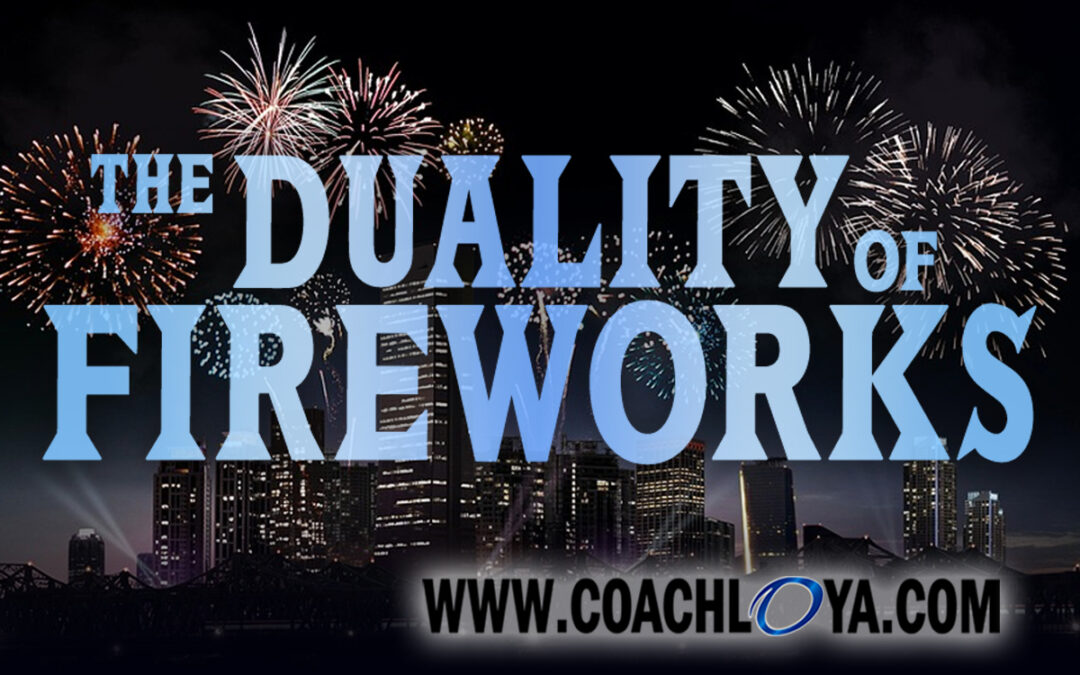Fireworks are a Fourth of July tradition—and they have been since Americans celebrated the first Independence Day way back in 1777.
The fireworks on that day were only orange though, not red, white, or blue. It would take inventors another sixty years to discover how to add elements like strontium and barium to create the colored fireworks we see today.
If you’re a regular Teammate Tuesdays reader, you know that I live very close to Walt Disney World and am treated to fireworks 365 nights a year. You would think that sort of proximity and regularity would diminish my fondness for fireworks, but nothing could be further from the truth.
I unabashedly love fireworks, whether they’re shot off nightly at Disney or annually on Independence Day or on New Years Day or on Guy Fawkes Day. (Remember, remember, the fifth of November!)
When it comes to metaphorical fireworks—strong emotional outbursts—my feelings aren’t nearly as clear cut. Some I love. Some I loathe.
In many ways, good teammates are defined by how they manage the duality of their relationship with metaphorical fireworks. On the one hand, fireworks can represent positive emotional outbursts, like those associated with joy, excitement, or elation. On the other hand, fireworks can represent negative emotional outbursts, like those associated with anger, frustration, and resentment.
Being a good teammate necessitates being mindful of this duality. Good teammates understand that positive emotional outbursts can create virality and inspire action on their teams, while negative emotional outbursts can create drama and incite toxicity.
This mindfulness leads them to unleash positive outbursts and constrain negative outbursts.
Learning how to keep negative outbursts from going nuclear is a talent that will serve you and your teammates well. If you struggle to constrain your negative emotions when a teammate upsets you, here are three tips:
- Stay calm, take a timeout, and don’t get sucked into the emotional vortex. (You can’t think objectively while you’re irate.)
- Let the other person speak without interruption. (You need to learn the other person’s perspective and you do that best by listening.)
- Respond by speaking slower and at a lower-than-normal volume. (Tempered vocalization can prevent further escalation.)
If you struggle to unleash positive emotions when a teammate experiences success, here are three tips:
- View celebrating your teammates’ accomplishments as your responsibility. (Cheering, applauding, and jumping for joy is doing your duty.)
- Embrace the idea that “when one of wins, we all win.” (Dimming another’s candle will never make yours burn brighter!)
- Realize that hugs, high fives, and fist pumps release biochemicals like serotonin, dopamine, endorphins that reduce stress and create a sense of euphoria. (It behooves you to not be stingy in dispensing them!)
Mental health experts note that though seemingly erratic, emotional outbursts, metaphorical fireworks, can be a healthy way to express and release strong emotions.
The most effective approach is to recognize your triggers and remember that you are in control. Similar to actual fireworks, metaphorical fireworks—whether positive or negative—can’t be set off without their fuses being lit.
As always…Good teammates care. Good teammates share. Good teammates listen. Go be a good teammate.





